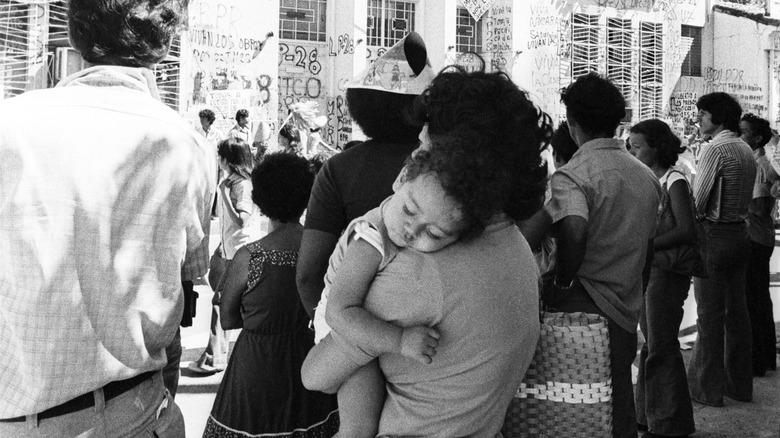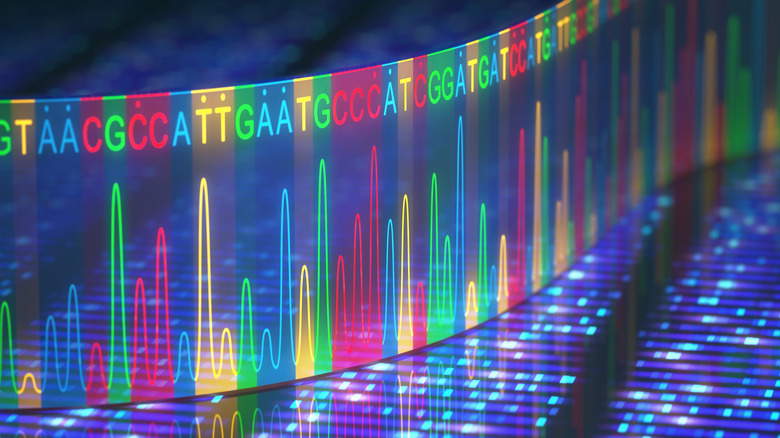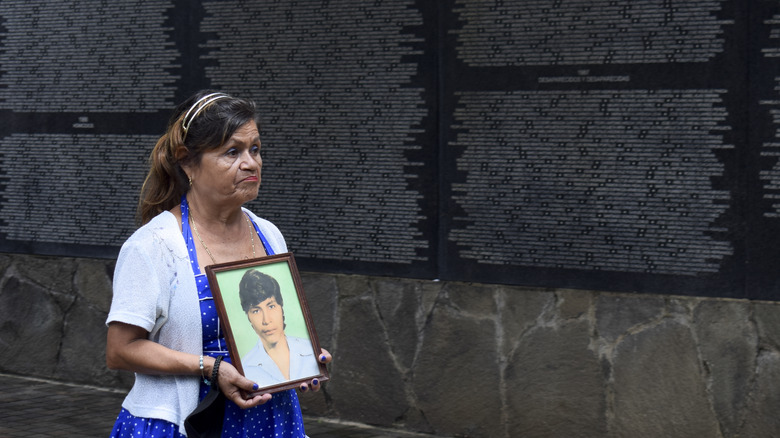How DNA Evidence Helped Reunite Hundreds Of Missing Children From War-Torn El Salvador
There was once a time that people could change their names and hop from city to city and country to country, never having their true identities discovered. The development of DNA testing technology has made it more difficult for some to stay hidden in plain sight, though. From solving cold cases to finding long-lost relatives, DNA technology is used for a wide range of purposes in the modern day — that includes in El Salvador.
The Central American country experienced a bloody civil war between 1979 and 1992, according to Britannica. The brutal conflict led to the deaths of more than 75,000 people, and an additional 8,000 disappeared (via PBS). In these harsh conditions, it's no wonder that many Salvadoran parents worried for the safety of their children. In fact, the situation was so dangerous that some parents, hoping their kids would find their way to a safer country, chose to give up their babies for international adoption (via NPR).
Moreover, during the conflict, it wasn't uncommon for military forces to kidnap children from villages, per Amnesty International. Overall, this means there are many stolen babies and kids who went missing or were adopted internationally during the Salvadoran civil war — leaving many parents with no idea where their children are now.
The DNA project
In the face of this situation, human rights groups and scientists stepped in. Though reunification efforts are hard with limited paper trails for adoptions and the lack of available documentation from the government regarding kidnappings (via Amnesty International), DNA can't be changed — and that means, when it's found to match, it can definitively connect parents with their long-lost children.
Of course, this is easier said than done, considering most rural Salvadorans have limited access to DNA technology, and even in the U.S., your average person doesn't know what their DNA profile looks like. A local nonprofit called Pro Busqueda connected with the University of California at Berkeley to gather and analyze various DNA samples (via PBS). By taking samples from parents in El Salvador who had lost their children, as well as international Salvadoran adoptees who didn't know their birth parents, they were able to slowly build up a group of DNA profiles.
Processing DNA is a long task and was especially difficult in the early 2000s when the DNA analysis effort began. So scientists at Berkeley volunteered their time to analyze the DNA after hours, according to PBS. Now, in 2022, Pro-Busqueda reports they have connected more than 400 pairs of parents and children (via Phys).
The future of parent-child reunification in El Salvador
One girl named Angela Fillingim was reconnected to her birth family through Pro Busqueda's work (via PBS). Fillingim, who was adopted by her Berkeley-based parents when she was 6 months old, discovered through Pro Busqueda that her mother put her up for adoption after several of her other family members died during the civil war, and Fillingim's birth mother didn't want her daughter to be next. Fillingim was able to travel to El Salvador to meet her family and see where she was born.
By 2014, the ongoing efforts of Pro Busqueda had spread to the United States, where advertisements were shared asking Salvadoran immigrants or adopted Salvadorian children to reach out to the organization to share their DNA samples (via The World). As of 2022, new researchers had gone to work creating a Salvadorian DNA database to further the efforts to reunite families, expanding beyond parents and children to any family members who may have been separated during the civil war or when they fled to other countries (via Phys).


